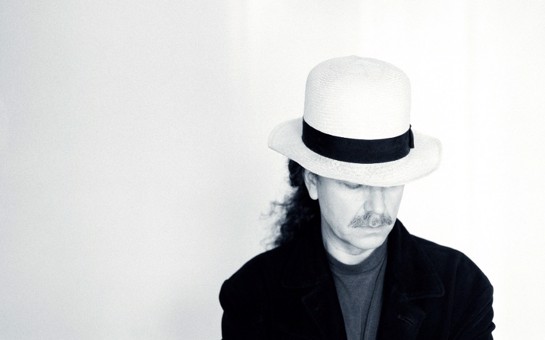- James Dillon
The Hermes Scroll (2025)
- Peters Edition Limited (World)
Commissioned by Klangforum Wien funded by Ernst von Siemens Musikstiftung
Commissioner exclusivity applies
- 1(pic).1.1+bcl.1(cbn).sax/1.1.1.0/3perc/2pf(2kbd)/acn/3vln.2vla.2vlc.2db
- 45 min
Programme Note
THE HERMES SCROLL
I morning aura
II ‘ .. of many shifts’; ten panels
III crossing: wind falls slow
IV mourning veil, a hermeneutics
Hermes, patron of travellers, god of transitions and boundaries, born of the sky and the plains, his name derived from the Sanskrit Sarameias, variously interpreted as meaning either ‘the morning breeze,’ or the name of the Hindu helldogs, akin to the Greek Cerberus. Hermes, god of the wind, is said to waft away the souls of the dead, for the ancients held that in the wind were the souls of the dead. He is the liar, the trickster wind-god who invented the lyre, his music is but melody of the winds, which is said to awaken feelings of joy and sorrow, of regret and yearning, of fear and hope, of vehement gladness and utter despair. The 7th-century Homeric Hymn 4 to Hermes describes the god’s birth and invokes Hermes as a god ‘of many shifts’ (polytropos), associated with cunning and thievery, but also a bringer of dreams and a night guardian.
Hermes is the figure who marks transition and exchange, whether it be the transition of a
soul from life to death (he is portrayed on tombs), Hermes travels always in the middle,
marking the boundary to be crossed. Nothing about him is settled, stable, permanent, or
restricted or definite. He represents in space and in the human world movement and flow,
mutation and transition, contact between foreign elements.
J.-P. Vernant
Scroll, as an object, a noun suggests the stasis of the long scrolls of Egypt and Eastern Asia, or the ornamental scrolls, often spirals of architectural decoration. As a verb, to scroll is to move, to flow, for example the scrolling between images, or indeed worlds. This double meaning draws a tension (attention) between the ceremonial (ritual) and the ‘informal’ (chance), a back and forth. It is a sense of movement, of ‘ancient echoes’, chimes in the wind, of ‘shifting harmonies’, of turbulence, of sound becoming as time departs.
Elegy, from Greek elegos, ‘a song of mourning,’ in classical literature, an elegy, often in the form of a song of lamentation, love, or politics. The question of how to begin and how to end or rather what begins and what ends, is an ontological question and one not always answerable. To begin or end an action is an attempt to form or frame energy; energy internal to that frame pushes beyond its boundaries, energy external to it folds in. What is this energy, in the elegy it is a sense of ‘loss’, it is the tone, its atmosphere, ‘energy as form’ here has a melancholic turn.
James Dillon
More Info

- The Hermes Scroll
- 21st October 2025
- Klangforum Wien to premiere James Dillon's 'The Hermes Scroll'.

 Located in the UK
Located in the UK
 Located in the USA
Located in the USA
 Located in Europe
Located in Europe